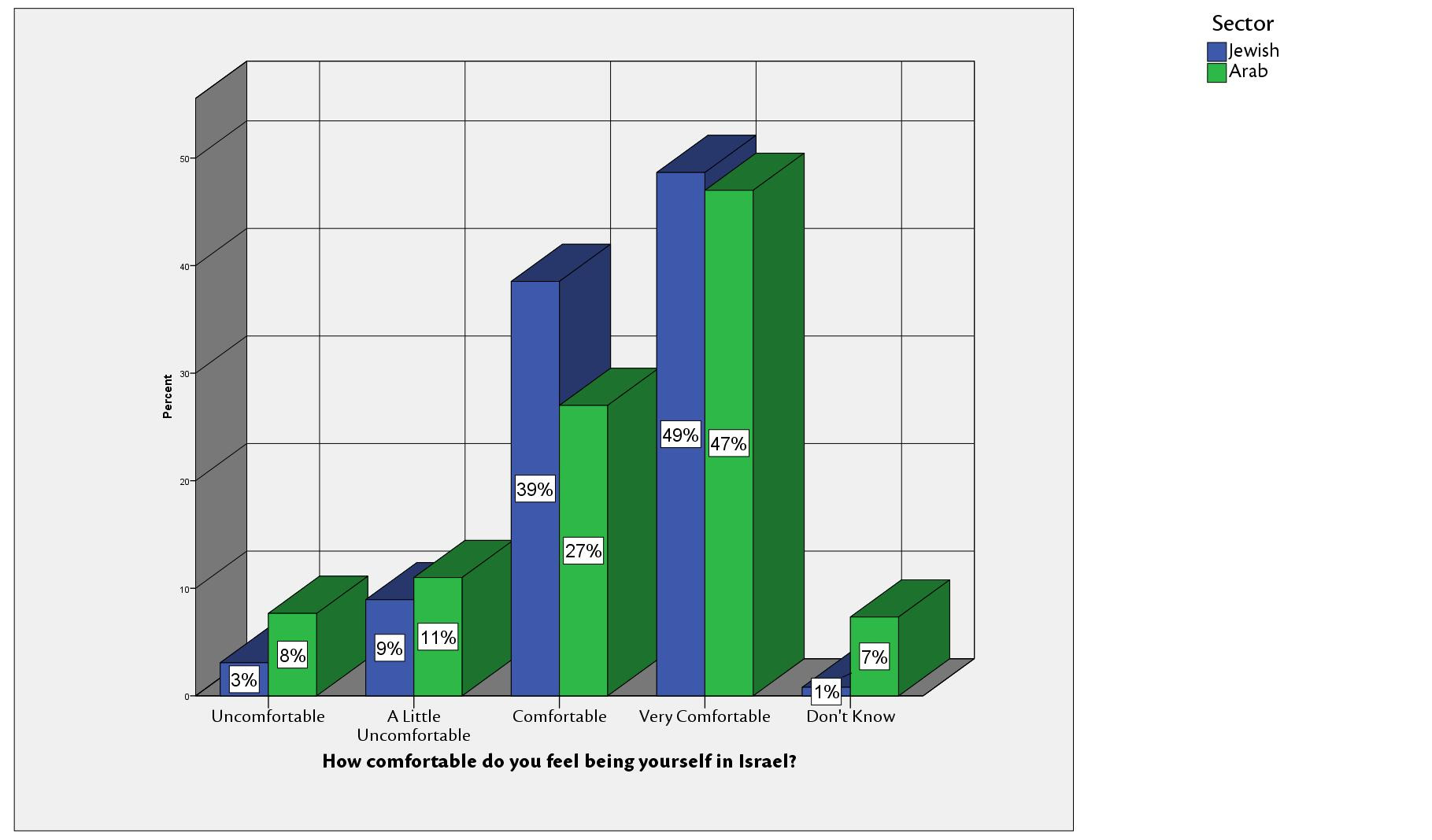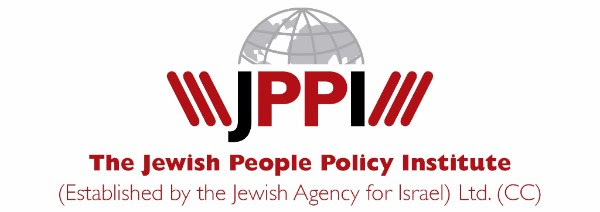Todays Report: Jewish People Policy Institute Pluralism Index
Jewish People Policy Institute Pluralism Index:
Israeli Jews and Arabs are Happy to Live in Israel, Just not Together
Secular and Haredi Jews prefer separate neighborhoods;
Ashkenazi-Sephardic, Rightist-leftist live together well
• Israelis — Jews and Arabs — comfortable living in Israel “as they are.”
• Israelis do not think Jews and Arabs should live in the same neighborhoods.
• More Israeli Arabs want their children to study with Jews than Israeli Jews want their children to study with Arabs.
• Secular and Haredi (ultra-Orthodox) Jews do not think they should live in shared neighborhoods (about half of the Haredim would not mind sharing). “Completely secular” Jews do not want shared neighborhoods with religious (Orthodox – Dati) Jews either.
• The vast majority of Israeli Jews think Jews from different ethnic backgrounds or political views should live in mixed neighborhoods.
• Soldiers are perceived as highly contributing to the success of Israel, even by Arab Israelis and Haredis, who usually don’t serve in the IDF.
• A majority of Arab Israelis and almost half of Jewish Israelis agree that there is “too much freedom of speech” in Israel.
Jerusalem, April 20, 2017…The Jewish People Policy Institute (JPPI) released its second annual Pluralism Index, a major element of the Institute’s broader pluralism project, supported by the William Davidson Foundation and led by Senior Fellow Shmuel Rosner. The Index finds that more than 90% of Jewish Israelis and almost 80% of Arab Israelis feel “comfortable” or “very comfortable” to be “who they are” in Israel. Among Jews, the sense of comfort is greater for those who define themselves further to the right on the political or religious spectrum. Among Arabs, the sense of comfort is greater for those who define their main identity as “Israeli” and is lower (but still high) among those who define their main identity as “Arab” or “Palestinian.”
JPPI President Avinoam Bar-Yosef emphasized that on the eve of Israel’s 69th Independence Day, “the Pluralism Index shows once again that the greatest success of the Jewish state is the integration of Diaspora Jews, from more than 90 different countries, in one thriving society. They wish to live together, form families together, and build a common future.” Bar-Yosef added, “the fact that many Arabs living in the Jewish state define their primary identity as Israeli and feel comfortable and at home in Israel is very encouraging. Having said that, there is still much to be done to ensure full equality.”

A significant majority of both Jews and Arabs do not think it is wise for them to live together. A majority of Jews do think it is wise for secular and religious Jews to live together, but not for secular and ultra-Orthodox (Haredi) Jews. Interestingly, in both cases the “totally secular” group is most reluctant to encourage such mixing. JPPI also found that Jews with political and/or intra-Jewish ethnic differences recommend living in the same neighborhoods. Similarly, a significant majority of Muslim Arabs and the vast majority (more than 90%) of Christian Arabs in Israel do not think it is wise for their respective groups to live together.


Public perceptions about which sectors of Israeli society “contribute” more or less to the success of the country show that soldiers are perceived most positively, significantly more than any other group (JPPI found the same result in 2016). The two groups whose children tend not to serve in the military, Muslim-Arabs and ultra-Orthodox Jews, are perceived as contributing least to the success of the country, and this year – having added some new groups to the questionnaire – they are joined by Bedouins.
Other interesting findings: Somewhat surprisingly, Arab Israelis rank Israeli soldiers higher than most other groups. That they rank “settlers” at the bottom of the list is less of a surprise. And much like Israeli Jews, Israeli Arabs also take a dim view of the contribution of ultra-Orthodox Jews to Israel’s success.

JPPI defines Israeli pluralism, in the context of this project, as “The condition in which Israelis of different social classes, ideologies, religious streams, levels of beliefs and practices, genders, and ethnic backgrounds have an opportunity to legitimately exercise their differences in the public sphere.”
The survey that supports the Pluralism Index effort was conducted by Panels Politics and included a relatively large sample of 1300 Israelis by the following methods:
| Group | Internet Panel | Phone survey | Total by population |
| Jews | 549 | 549 | |
| Jews 50+ | 203 | 203 | |
| Former USSR immigrants | 83 | 82 | 165 |
| Ultra-Orthodox | 90 | 90 | |
| Arabs | 300 | 300 | |
| Total | 632 | 675 | 1307 |
Statistical analysis for the Pluralism Index and the methodological development was led by Professor Steven Popper, Senior Fellow at the Institute and a Senior Economist at the Rand Corporation, together with JPPI Senior Fellows Professor Uzi Rebhun of the Hebrew University, a demographer, Dr. Shlomo Fischer, a sociologist, Shmuel Rosner, and Institute Fellow Noah Slepkov.
JPPI is an independent policy planning think tank. The mission of the Institute is to ensure the thriving of the Jewish people and the Jewish civilization by engaging in professional strategic thinking and action-oriented policy planning on issues of primary concern to world Jewry.









